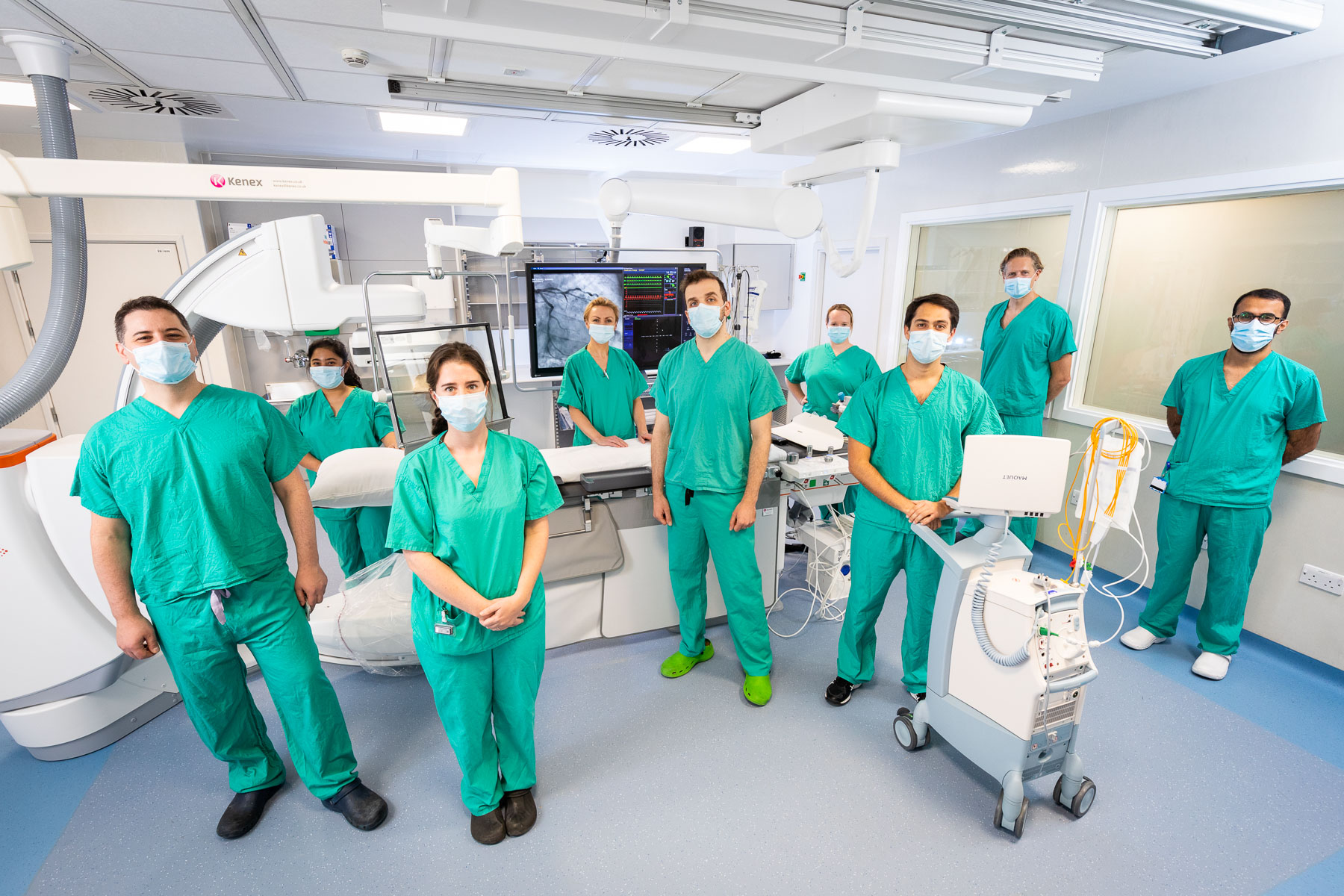
The Royal Free Hospital’s heart attack centre is the first in the country to feature a raft of new imaging equipment that will transform patient care.
The two state-of-the-art x-ray machines that have been installed produce clearer images, making it easier for clinicians to make an accurate diagnosis, and produce less radiation, making them safer for patients and staff. The new equipment is also easier for clinicians to use and means patients can be seen more quickly.
The Royal Free Hospital’s heart attack centre – also known as a catheterisation lab - is one of the busiest in London, carrying out a full range of complex coronary procedures and serving over 1 million people in north London. The new OPTIQ x-ray technology will make it one of the best-equipped units in the country.
RFL cardiology service lead Tim Lockie carried out the first procedure using the new equipment on 7 October. He said: “We’re very excited to be the first hospital in the UK and one of the first in Europe to make use of this new technology. The new x-ray machines have a touch screen which make them easier to use and improves efficiency. In addition, they produce higher quality images, which means we can make a more accurate diagnosis and the radiation dose delivered to patients while the x-rays are taken is lower, so it’s safer for them and staff.”
A new patient lounge – known as a radial lounge – will provide a relaxing space for patients before and after their procedures. Patients in the lounge are encouraged to sit in chairs, which means that they are more likely to recover quickly than if they had been lying in a hospital bed.
Dr Lockie added: “I really hope that it will help patients coming into our hospital feel more comfortable about what can be quite a daunting process. It will also allow us to see more patients by increasing speed while maintaining our high standards.”
The installation of the new x-ray machines is part of a larger project to improve the quality of imaging at the trust. Two MRI scanners have now been replaced with state-of-the-art equipment, and a third will be installed by the end of the year. Two nuclear gamma cameras, which help in diagnosing some cancers, will also be replaced by the end of the year and three interventional radiology labs are due to open in 2021.
The RFL imaging upgrade began in October 2019, but had an unexpected setback when the COVID-19 pandemic meant that construction sites had to be temporarily shut down. Faced with delays, ever changing infection control guidance and a need to keep emergency services running, the team were able to keep the project on track.
Brian Pratt, director of capital projects, said: “It’s a real testament to the flexibility and perseverance of everyone involved. During lockdown we held bi-weekly meetings with the construction team and clinical team assessing different options of how we could safely re-start the construction. Eventually we were able to develop a re-start planning, incorporating things such as social distancing and new PPE requirements.
“Due to the MRI equipment being needed for essential NHS works, we were able to waive the lockdown border controls and also had government approval for engineers to waive quarantine and come from Germany to install and commission the MRI units. We feel proud to now be handing over the project and opening the new equipment to patients.”
Picture: The cardiology team with the new equipment
 Translate
Translate